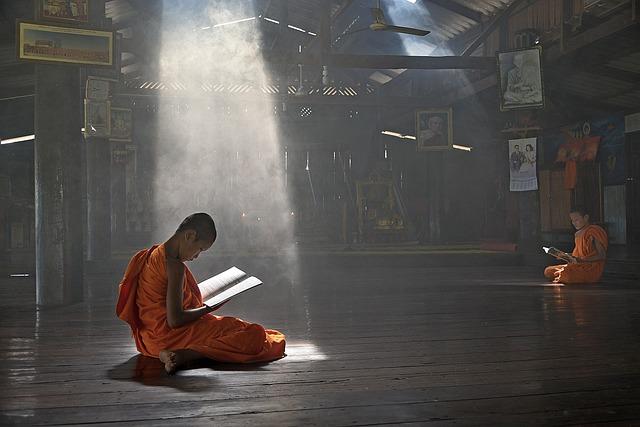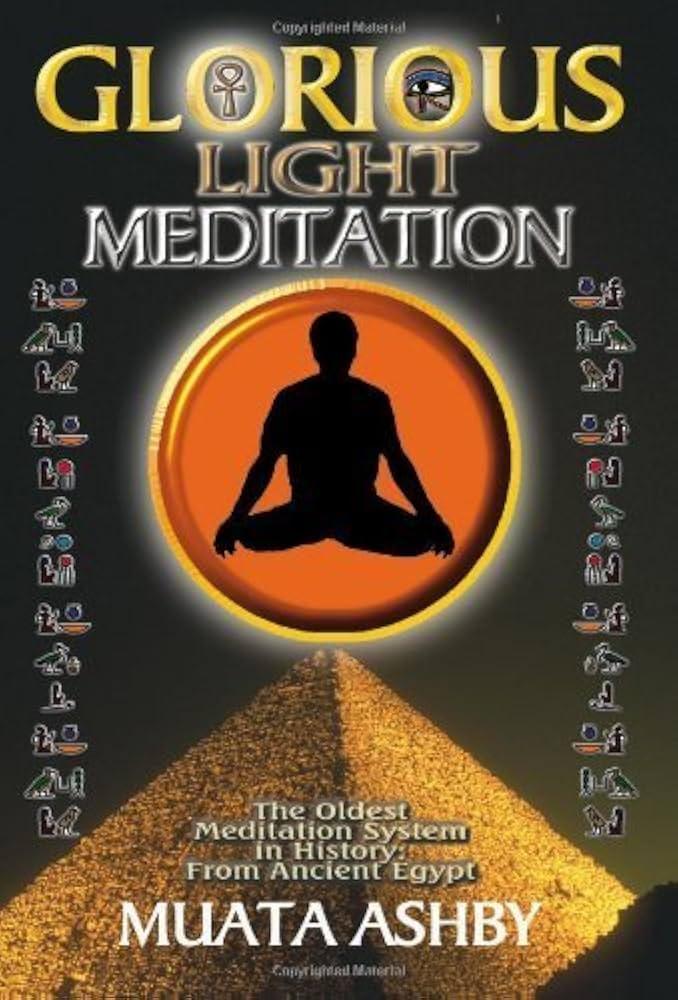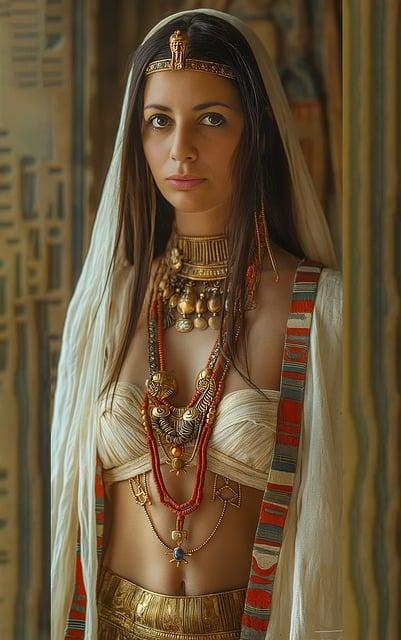In the heart of a civilization that gave rise to some of the most enduring monuments and mysteries, the ancient Egyptians practiced a form of spiritual introspection that remains shrouded in the sands of time. Ancient Egyptian meditation, a practice not as widely documented as their grand architectural feats or intricate pantheon, offers a fascinating glimpse into the spiritual lives of a people who sought to harmonize the earthly and the divine. As we delve into this enigmatic tradition, we uncover the subtle yet profound ways in which meditation was woven into the fabric of their daily existence and spiritual aspirations. This exploration reveals not only the meditative practices themselves but also their significant impact on the soul’s journey through the afterlife, a journey that was as sacred to the Egyptians as the life they lived under the sun-drenched skies of the Nile. Join us as we embark on an odyssey through time, unraveling the mysteries of how meditation shaped the spiritual landscape of ancient Egypt and left an indelible mark on the souls who walked its lands.
Unveiling the Mystical Practices of Ancient Egyptian Meditation
The spiritual practices of the ancient Egyptians were as profound as the mysteries of the pyramids themselves. Meditation played a crucial role in their quest for divine connection and self-discovery. Enshrined in the serene silence of temple chambers, Egyptians engaged in meditation as a means to transcend the physical realm and commune with the gods. They believed that through meditation, one could access the divine knowledge of the universe, thus achieving a harmonious balance between the body and the spirit.
- Visualization Techniques: Practitioners often visualized sacred symbols, such as the ankh or the Eye of Horus, to invoke protection and enlightenment.
- Chanting and Incantations: Reciting sacred hymns was believed to attune the soul to the cosmic vibrations, allowing a deeper state of consciousness.
- Focused Breathing: Deep, rhythmic breathing was used to quiet the mind and prepare the spirit for divine encounters.
These mystical practices were not merely spiritual rituals but a journey into the depths of one’s soul, revealing the eternal connection between humanity and the cosmos. In embracing these ancient techniques, modern seekers can find a bridge to the past, unlocking the spiritual potential that resides within us all.

Exploring the Spiritual Dimensions and Philosophies of the Nile Valley
The ancient Egyptians, renowned for their profound understanding of the metaphysical, developed meditation practices that were deeply intertwined with their spiritual beliefs and daily lives. These practices were not just methods of relaxation but were essential tools for connecting with the divine and accessing higher states of consciousness. Meditation in the Nile Valley often revolved around the visualization of deities and sacred symbols, allowing practitioners to channel the energies of the gods and align themselves with the cosmic order, known as Ma’at.
- Visualization Techniques: Practitioners would focus on images of the sun, the river Nile, or sacred animals, using these symbols to transcend the physical realm.
- Chanting and Mantras: Recitations of sacred texts and hymns were employed to elevate the spirit and invite divine presence.
- Ritualistic Breathing: Controlled breathing was believed to cleanse the soul and prepare the mind for spiritual journeys.
- Sacred Spaces: Temples and natural landscapes served as powerful meditation sites, imbued with spiritual significance and energy.
These meditative practices not only provided a path to spiritual enlightenment but also had a profound impact on the individual’s understanding of life and death. By engaging in these ancient methods, practitioners were thought to gain insights into the mysteries of the universe and their own place within it, achieving a harmonious balance between the earthly and the divine.

Harnessing Ancient Techniques for Modern Mindfulness
Long before mindfulness became a buzzword in modern wellness circles, the ancient Egyptians had already established a profound connection between the mind, body, and spirit through their meditative practices. These age-old techniques, deeply embedded in their spiritual and daily lives, offer a unique lens through which we can explore mindfulness today. Ancient Egyptian meditation often revolved around creating a sacred space, utilizing chants, and focusing on divine symbols. These practices were not just about relaxation, but a holistic journey towards achieving harmony with the cosmos.
- Sacred Symbols: The Eye of Horus, the Ankh, and other hieroglyphs served as focal points for meditation, believed to channel divine energy.
- Chants and Incantations: Specific sounds and words were used to elevate consciousness, each carrying spiritual significance.
- Connection with Nature: Many meditations took place in natural settings, emphasizing the unity with the earth and celestial bodies.
By adopting these ancient practices, modern mindfulness enthusiasts can tap into a wellspring of spiritual wisdom, finding balance and tranquility in the midst of today’s fast-paced world. Embracing the rituals of the past allows for a deeper understanding of self and the universe, creating a bridge between the ancient and the contemporary.

Integrating Egyptian Spiritual Wisdom into Contemporary Life Practices
At the heart of ancient Egyptian culture lies a profound connection to the cosmos and the divine, a connection that can be nurtured through the practice of meditation. The Egyptians believed in the unity of mind, body, and spirit, and their meditative practices were designed to harmonize these elements. By incorporating deep breathing techniques, visualizations of sacred symbols, and recitations of hymns or chants, individuals sought to align themselves with the energies of the universe. These practices not only fostered a sense of inner peace but also facilitated a deeper understanding of one’s place in the cosmos.
- Deep Breathing Techniques: Focus on rhythmic inhalation and exhalation to promote tranquility.
- Visualization of Sacred Symbols: Envision symbols like the Ankh or Eye of Horus to channel spiritual energy.
- Recitations of Hymns or Chants: Use sound vibrations to enhance spiritual connectivity and focus.
By integrating these ancient techniques into modern life, one can cultivate a spiritual practice that transcends time. The spiritual impact of such meditation is profound, offering not only a pathway to personal enlightenment but also a bridge to the wisdom of an ancient civilization. This ancient approach serves as a reminder of the timeless nature of spiritual exploration and the enduring quest for harmony within and beyond ourselves.
Wrapping Up
As the sands of time continue to shift, revealing the hidden depths of ancient wisdom, the meditative practices of the Ancient Egyptians stand as a testament to humanity’s enduring quest for spiritual enlightenment. These practices, rooted in a profound understanding of the cosmos and the self, offer a glimpse into a world where the material and the mystical were inextricably intertwined. In exploring the spiritual impact of these ancient traditions, we find not only a window into the past but also a mirror reflecting the timeless nature of human introspection. As we journey forward, perhaps the echoes of these meditative whispers can guide us towards a deeper connection with our own inner landscapes, inviting us to pause, reflect, and transcend the boundaries of time and space. Let us carry these ancient teachings with us, not as relics of a bygone era, but as living legacies that continue to inspire and illuminate our spiritual paths.
